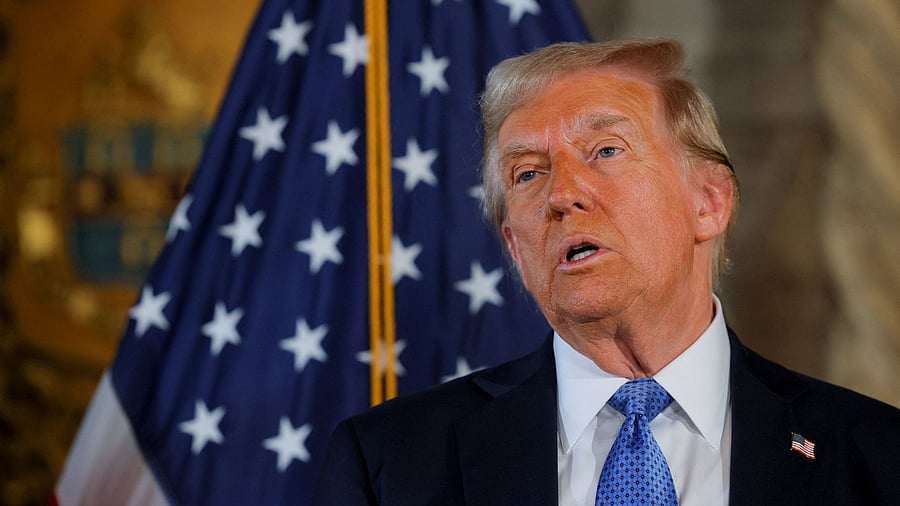
US President-elect Donald Trump
Credit: Reuters File Photo
A judge on Monday rejected Donald Trump’s argument that a recent Supreme Court ruling had nullified his criminal case in New York, upholding the former and future president’s felony conviction for falsifying records to cover up a sex scandal.
The judge’s ruling preserves, at least for now, the stain of Trump’s criminal conviction.
The ruling, which addressed the Supreme Court’s decision to grant presidents broad immunity for their official actions, thwarted only the first of several legal maneuvers Trump has concocted to clear his record of 34 felonies before returning to the White House.
Prosecutors had argued that the Supreme Court’s decision had “no bearing on this prosecution,” noting that Trump was convicted of orchestrating a scheme involving a personal and political crisis that predated his presidency.
But Trump’s lawyers seized on a particularly contentious portion of the high court’s ruling, which prohibited prosecutors from introducing evidence involving a president’s official acts even in a case about private misconduct. They argued that testimony from former White House employees had contaminated the verdict.
In the first significant interpretation of that polarizing opinion, the New York judge who oversaw the trial sided with prosecutors, concluding that the testimony centered on Trump’s unofficial conduct.
“The People’s use of these acts as evidence of the decidedly personal acts of falsifying business records poses no danger of intrusion on the authority and function of the executive branch,” Justice Juan M. Merchan wrote in a 41-page decision.
And even if the evidence was “admitted in error, such error was harmless,” he added, noting the “overwhelming evidence of guilt” introduced at trial.
A spokesperson for Trump, Steven Cheung, criticized the ruling, calling it “a direct violation of the Supreme Court’s decision on immunity.”
A spokesperson for Manhattan District Attorney Alvin Bragg, whose office brought the case, declined to comment.
Merchan will not have the final say on the immunity issue, and Trump can now appeal his ruling. Even if Trump loses in New York’s appellate courts, he can ultimately take the matter to a friendlier venue: the Supreme Court.